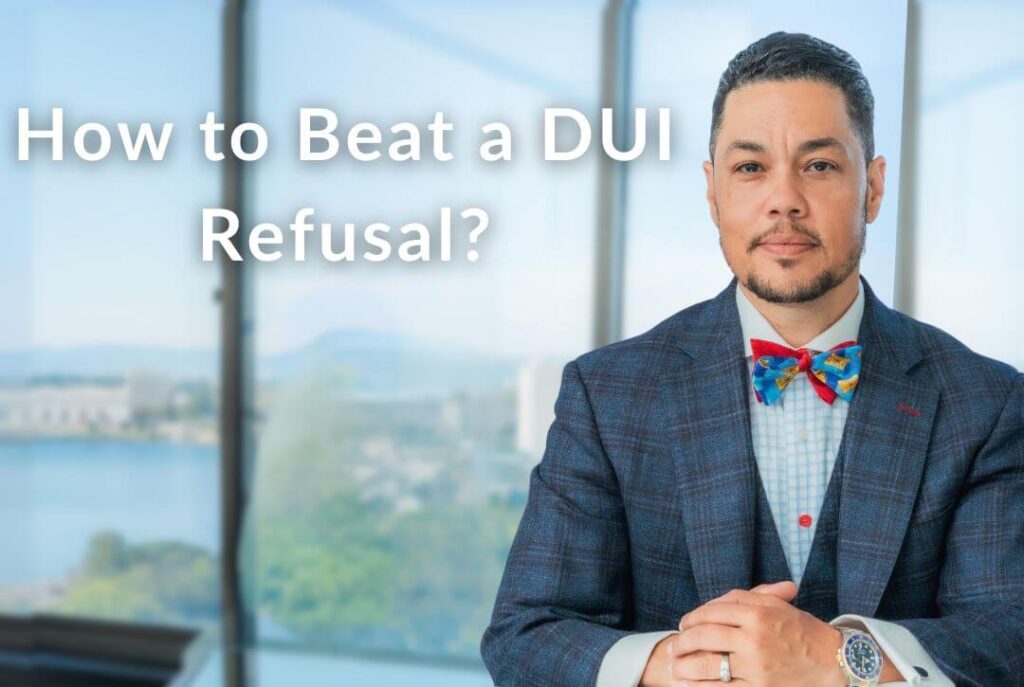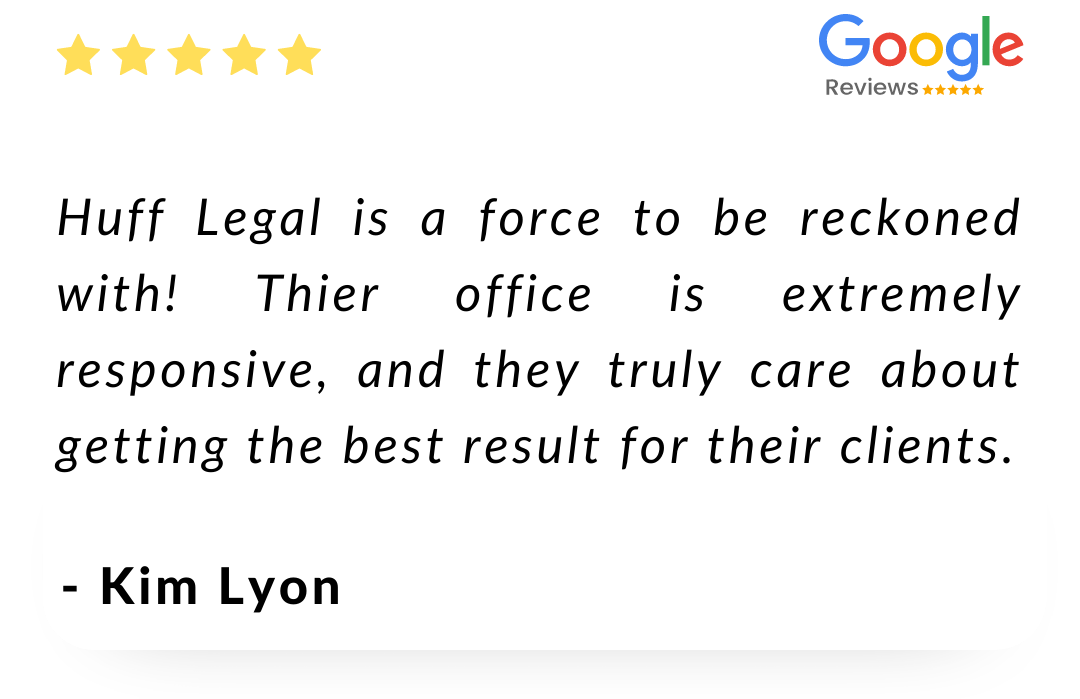How to Beat a DUI Refusal?
How to Beat a DUI Refusal?
Refusing a blood alcohol content (BAC) test when arrested for a DUI can lead to serious legal consequences, including license suspension and jail time. If you’re facing a DUI refusal charge, you may be wondering if there’s any way to beat it.
The good news is that, with the right legal strategy and representation, you can fight a DUI refusal charge and protect your rights.
Another popular strategy for contesting a DUI refusal is to show that you did not refuse the secondary chemical test. A DUI rejection is only considered legitimate if the police give you 15 minutes to change your mind following the initial refusal.
In this article, we’ll explore the methods and tactics you can use to beat a DUI refusal, including challenging the legality of the arrest, arguing that you were not properly informed of the consequences of the refusal, and demonstrating that you were physically unable to complete the test.
What is a DUI Refusal?
A DUI refusal occurs when a driver who has been arrested on suspicion of driving under the influence (DUI) refuses to submit to a chemical blood alcohol content (BAC) test, such as a breathalyzer or blood test. In most states, including California, drivers are considered to have given implied consent to BAC testing by obtaining a driver’s license, meaning that refusing a test can lead to legal consequences.
Implied Consent Laws
When you obtain a driver’s license, you are agreeing to comply with your state’s implied consent laws. These laws state that if you are lawfully arrested on suspicion of driving under the influence, you consent to take a chemical BAC test to determine your level of intoxication. Refusing to take this test can result in penalties, even if you are not ultimately convicted of a DUI.
Types of BAC Tests
There are three main types of BAC tests that law enforcement may request:
- Breathalyzer Test: This is the most common type of BAC test, where you blow into a device that measures the alcohol content in your breath.
- Blood Test: In some cases, officers may request a blood test to measure your BAC. This involves drawing a sample of your blood and analyzing it for alcohol content.
- Urine Test: Less commonly, officers may request a urine test to measure your BAC. However, this method is generally considered less reliable than breath or blood tests.
Request a Free Consultation
Consequences of a DUI Refusal
Refusing a chemical BAC test when lawfully arrested for a DUI can lead to serious legal consequences, even if you are not ultimately convicted of the DUI itself. In California, the penalties for a DUI refusal can include criminal charges and license suspension.
Criminal Charges
In California, a DUI refusal can result in criminal charges, separate from any charges related to the DUI itself. These charges can include:
- Misdemeanor Refusal: A first-time DUI refusal is typically charged as a misdemeanor, punishable by up to six months in jail and a fine of up to $1,000.
- Felony Refusal: If you have previously been convicted of a DUI or DUI refusal, a subsequent refusal may be charged as a felony, punishable by up to three years in prison and a fine of up to $10,000.
It’s important to note that these criminal charges are in addition to any penalties you may face for the DUI itself, which can include jail time, fines, and mandatory alcohol education or treatment programs.
License Suspension
In addition to criminal charges, a DUI refusal can also result in the automatic suspension of your driver’s license by the California Department of Motor Vehicles (DMV). The length of the suspension depends on whether you have any prior DUI convictions:
- First Offense: If you have no prior DUI convictions within the past ten years, your license will be suspended for one year.
- Second Offense: If you have one prior DUI conviction within the past ten years, your license will be suspended for two years.
- Third or Subsequent Offense: If you have two or more prior DUI convictions within the past ten years, your license will be suspended for three years.
To regain your driving privileges after a DUI refusal suspension, you will need to complete the full suspension period, pay a reinstatement fee, and provide proof of insurance. In some cases, you may be required to install an ignition interlock device (IID) on your vehicle, which prevents the car from starting if it detects alcohol on your breath.
A DUI Refusal Can Lead to Criminal Charges
Refusing a BAC test after a DUI arrest in California can lead to serious legal consequences, including criminal charges. Under Vehicle Code Section 23612, drivers who refuse a BAC assessment face license suspensions and potentially extended jail time.
Specifically, a first refusal can result in a one-year license suspension, a second refusal can lead to a two-year revocation, and subsequent refusals may result in a three-year revocation. Additionally, if you are convicted of a DUI in court after refusing a BAC test, you may have additional days added to your jail sentence as a refusal enhancement.
Understanding these potential repercussions is crucial if you find yourself in this situation.
A DUI Refusal Can Lead to Criminal Chargesav
Refusing a BAC test after a DUI arrest in California can lead to serious legal consequences, including criminal charges. Under Vehicle Code Section 23612, drivers who refuse a BAC assessment face license suspensions and potentially extended jail time.
Specifically, a first refusal can result in a one-year license suspension, a second refusal can lead to a two-year revocation, and subsequent refusals may result in a three-year revocation. Additionally, if you are convicted of a DUI in court after refusing a BAC test, you may have additional days added to your jail sentence as a refusal enhancement.
Understanding these potential repercussions is crucial if you find yourself in this situation.
Regulations on BAC Testing in California
In California, all drivers are legally obligated to take a BAC test if they are arrested for a DUI, as driving in the state implies consent to such testing. However, not all drivers are required to complete preliminary alcohol screening (PAS) tests or field sobriety tests (FSTs) before an arrest.
You can legally refuse these tests unless you are under the age of 21 or on DUI probation. Drivers over 21 who are not on DUI probation have the right to refuse PAS tests and FSTs without facing charges for a DUI refusal.
Understanding these regulations and your rights is important, and a criminal defense lawyer can help clarify any confusion.

As Seen On












Methods to Beat a DUI Refusal in California
If you are facing a DUI refusal enhancement, a skilled DUI lawyer in California can use several methods to challenge the charges. Your lawyer will review the facts of your case to determine the best defense strategy.
You Were Arrested Unlawfully
Law enforcement officers must have reasonable cause to arrest you for a DUI. If you were arrested without due cause and subsequently refused a BAC test, your lawyer may argue that the arrest was unlawful, potentially leading to a dismissal of the charges.
You Were Not Informed of the Consequences of Refusal
In California, drivers must be informed of the consequences of refusing a legally ordered BAC test. If you were not properly advised that you were legally obligated to complete the test, your lawyer could argue that your refusal was not knowing and voluntary, which may help you beat the charges.
You Were Physically Unable to Complete the Test
There are situations where a driver may be physically unable to complete a BAC test due to severe injury or certain medical conditions. If this applies to your case, California law provides exceptions, and your lawyer can present evidence to support your inability to complete the test.
However, it’s important to note that being unable to complete the test due to the effects of drugs or alcohol does not qualify as a valid defense.
Five Ways to Beat a DUI Refusal or OUI
Facing a DUI refusal or OUI charge can be daunting, but there are effective strategies you can use to defend yourself. Here are five key ways to beat these charges:
Don't Provide Additional Information
When you’re stopped by law enforcement, limiting the information you provide is crucial. Politely decline to answer questions about whether you’ve been drinking or taking medication, as these admissions can be used against you. Instead, respond respectfully with “no thank you” when asked to take field sobriety tests or portable breath tests.
Remember, you have the right to remain silent; exercising this right can protect you from inadvertently incriminating yourself.
Use Video and Audio Recordings to Your Advantage
Many police stations and vehicles are equipped with video and audio recording devices. These recordings can be valuable evidence in your defense. If the footage shows you standing steadily, speaking clearly, and maintaining good balance, it can counter the officer’s claims of intoxication.
Be mindful of your actions and words, as they can support your case if captured on video or audio.
Get an Independent Blood Test
After leaving the station, consider obtaining an independent blood test to measure your blood alcohol content. This test can provide an unbiased assessment of your sobriety at the time of the arrest, which may differ from the results of a police-administered test. Having this independent evidence can be a powerful tool in challenging the prosecution’s case against you.
Hire an Experienced DUI Lawyer
Engaging an experienced DUI lawyer is one of the most critical steps you can take. A knowledgeable attorney understands the complexities of DUI and OUI laws and can navigate the legal system on your behalf.
They can identify weaknesses in the prosecution’s case, negotiate on your behalf, and explore options like hardship and interlock licenses to help you maintain your driving privileges.
Don't Settle
It’s important to explore all legal and factual defenses available to you before deciding on a course of action. While going to trial may seem intimidating, it can be a viable option if you believe in your defense.
Remember, even if you lose at trial, you have the right to appeal and continue fighting for a favorable outcome. Don’t rush into a settlement without fully understanding your rights and options.
DUI Refusal Dismissed: What You Need to Know
Understanding the grounds for dismissal and the importance of legal representation can significantly impact the outcome of your case.
Grounds for Dismissal
There are several reasons a DUI refusal charge might be dismissed. If the arresting officer did not have probable cause to stop you, or if you were not properly informed of your rights and the consequences of refusal, your case could be dismissed.
Additionally, if there is evidence that you were physically unable to complete the test due to a medical condition, this could also be grounds for dismissal. It is crucial to work with an attorney who can identify these opportunities and argue effectively on your behalf.
Importance of Legal Representation
Having a skilled attorney by your side can make all the difference in a DUI refusal case. An experienced lawyer will thoroughly investigate the circumstances of your arrest, challenge any procedural errors, and advocate for your rights in court.
They can negotiate with prosecutors to seek a reduction or dismissal of charges and guide you through the complexities of the legal process. With the right representation, you can increase your chances of a favorable outcome and protect your future.
What Clients Say About Us





Schedule Your Free Consultation Today
Handle a DUI Charge in California with Professional Help
Facing a DUI charge in California can be overwhelming, but you don’t have to go through it alone. Seeking professional help from an experienced DUI attorney is one of the most important steps you can take to protect your rights and future.
A skilled lawyer will guide you through the legal process, helping you understand the charges against you and the potential consequences. They will work tirelessly to build a strong defense, exploring every possible angle to challenge the prosecution’s case.
Why Professional Help Matters
Navigating the complexities of California’s DUI laws requires expertise and experience. A professional attorney will deeply understand the legal system and be familiar with the strategies that work best in DUI cases.
They can identify weaknesses in the evidence against you, negotiate with prosecutors for reduced charges or penalties, and represent you in court if necessary. With their support, you can confidently approach your case, knowing that you have a dedicated advocate on your side.
Personalized Defense Strategy
Every DUI case is unique, and a one-size-fits-all approach won’t work. An experienced lawyer will take the time to understand the specifics of your situation, including any mitigating factors that could influence the outcome.
They will develop a personalized defense strategy tailored to your needs, ensuring that your voice is heard and your rights are protected. By working closely with you, your attorney can help you achieve the best possible result in your case.
Take Steps to Beat a DUI Refusal with a Lawyer
If you’re facing a DUI refusal charge in California, partnering with a skilled attorney from Huff Legal can make all the difference. Our experienced team understands the complexities of DUI law and is committed to providing you with the best defense possible. We will thoroughly investigate your case, identify any procedural errors, and develop a tailored strategy to challenge the charges against you.
Don’t wait to take action. The sooner you contact Huff Legal, the better your chances of building a strong defense.
Contact us today for a consultation, and let our experienced team guide you through this challenging time. With Huff Legal by your side, you can confidently face your DUI refusal charge and work towards a positive resolution.
FAQ
How do you get over the guilt of a DUI?
Dealing with the guilt of a DUI can be challenging, but it’s important to remember that everyone makes mistakes. Focus on learning from the experience and taking steps to prevent it from happening again. Consider seeking support from friends, family, or a counselor to help you process your feelings and move forward.
How do you beat a DUI refusal in California?
Beating a DUI refusal in California involves challenging the circumstances of your arrest and the validity of the refusal charge. Working with an experienced DUI lawyer is crucial, as they can identify potential defenses, such as unlawful arrest or lack of proper advisement. By presenting a strong legal argument, your attorney can work to have the charges reduced or dismissed.
how to beat a DUI refusal
LET HUFF HELP YOU
As a former police officer and patrol supervisor and his time spent as a United States District Court Judicial Law Clerk to the Chief Judge, Attorney Huff knows how to navigate all levels of the complex criminal law system. We also have more than 55 years of combined experience dealing with various complex criminal legal matters and have helped just over 1,500 clients over the past few years.
Why Huff Is Your Best Option For Criminal Defense
55+ Years of Combined Experience
At Huff Legal, we have more than 55 years of combined experience dealing with complex criminal legal matters, which can oftentimes be quite challenging. In order to get the outcome you deserve, you need a team of experienced attorneys on your side, who can help you navigate the legal system, so you can move past this situation and focus on the life ahead of you!
5 Star Rating on Google
We have a proven track record of success and are dedicated to our clients’ best interests. If you’re looking for a law firm that will always have your back, look no further than Huff Legal. Just have a look at some of our amazing client reviews over here!
1,500+ Happy Clients
Over the years, we’ve had the privilege of helping over 1,500 clients with their legal needs. When you work with us, you can be confident that you’re getting the best possible legal representation. We’re proud of our track record and our reputation for being a firm that delivers great results.
What Our Clients Say About Us


Sheila


Abel Resendiz


Manuela Frazier


Doris
Contact Huff Today
Request A Free Consultation
* Free consultations only available for Criminal Defense


In legal terms, an accessory to murder refers to an individual who aids, abets, or otherwise assists in committing a murder. While the specifics may vary across jurisdictions, California law treats accessories to murder as active participants in the crime, holding them accountable for their actions. In San Francisco Bay Area, there are two primary types of accessories to murder:
In the event that you find yourself in the Bay Area facing accessory to murder charges, you should first call a criminal defense attorney who can help you defend your rights and lessen the effects of the investigation. Contact an attorney at Huff Legal as soon as possible following your arrest. An accomplished attorney from Huff Legal will thoroughly examine your case, who will then develop a strategy and build a defense.
